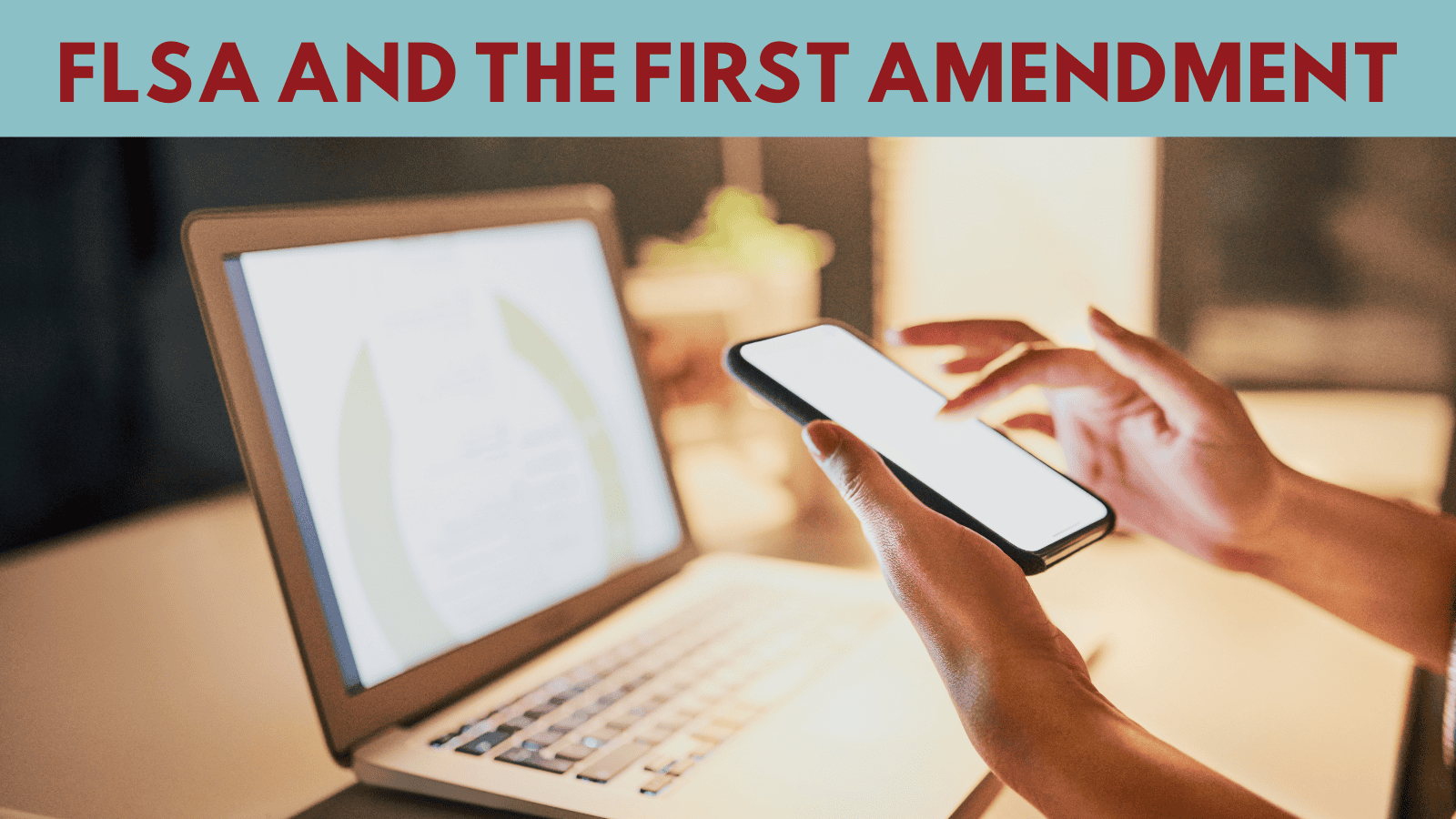Executive Order 13658 After EO 14026’s Rescission: What Contractors Need to Know
When Executive Order 14026 was rescinded in March 2025, many contractors asked: Does this mean EO 13658 is back in play? After all, wage...
Discover our wide range of courses designed to help you maintain compliance with Prevailing Wage and other labor laws
Join our upcoming events to ensure seamless compliance with Prevailing Wage and other essential labor laws
Discover how our services can assist you and your company in staying compliant with Prevailing Wage.
Explore the resources we offer, providing quick guidance on a wide range of topics
4 min read
Hailey Soupiset : July 31, 2024 7:24 PM

In a landmark decision, the U.S. District Court for the District of Vermont ruled that the First Amendment does not protect a Vermont-based excavation contractor, Bevins & Son Inc., from allegations of social media retaliation against its employees. This decision, denying Bevins & Son Inc.'s motion to dismiss, underscores the intersection of free speech rights and the anti-retaliation provisions of the Fair Labor Standards Act (FLSA). The case began in May 2023 when the U.S. Department of Labor (DOL) settled with Bevins & Son Inc. following an investigation by its Wage and Hour Division. The investigation found that the company had unlawfully terminated an employee who had threatened to report unpaid wages to the “labor board”. As part of the settlement, Bevins & Son Inc. paid $25,000 in punitive damages and $3,310 in back pay and liquidated damages to the wrongfully terminated employee, and an additional $17,356 in unpaid overtime wages and liquidated damages to 17 other employees. Following this settlement, in October 2023, the DOL’s Office of the Solicitor filed a new lawsuit against Bevins & Son Inc., alleging that company officials retaliated against the employee through disparaging social media posts. These posts suggested that the employee was responsible for negative media coverage of the settlement and implied misconduct concerning the settlement payments. In response, Bevins & Son Inc. argued that their actions were protected under the First Amendment and sought to dismiss the lawsuit.
The court’s decision to deny the motion to dismiss is significant, affirming that the First Amendment does not shield employer speech that constitutes retaliation under the FLSA. The ruling aligns with the DOL’s stance that adverse actions against employees for engaging in protected activities, such as filing complaints about wage violations, are not protected by free speech rights. The implications of this ruling are clear for employers: while they have the right to express their opinions, this right does not extend to retaliatory actions against employees asserting their lawful rights under the FLSA. The FLSA's anti-retaliation provisions are designed to protect employees from any adverse actions, including termination, demotion, harassment, or any form of retaliation, when they exercise their rights under the act. This protection is crucial for maintaining a fair and just workplace where employees can report violations without fear of retribution.
Among its various provisions, the anti-retaliation measures of the FLSA have played a crucial role in protecting employees who assert their rights under the act. Understanding the history of these provisions provides valuable insight into the evolution of workers' rights and the legal framework that supports them. When the FLSA was first passed, its primary objectives were to establish minimum wage, overtime pay eligibility, recordkeeping, and child labor standards affecting full-time and part-time workers in the private sector and in federal, state, and local governments. However, these protections would have been largely ineffective without measures to protect employees who reported violations or participated in enforcement actions. The original FLSA included Section 15(a)(3), which explicitly prohibits employers from retaliating against employees who file complaints, testify, or otherwise participate in proceedings related to the FLSA. This section was crucial in empowering workers to come forward with grievances without the fear of losing their jobs or facing other adverse actions from their employers. In the decades following the enactment of the FLSA, the importance of anti-retaliation provisions became increasingly evident. As the labor market evolved and new forms of employment emerged, the protections under the FLSA were periodically updated and expanded to address contemporary issues. The courts have also played a significant role in interpreting and reinforcing these provisions, often ruling in favor of broad interpretations to ensure robust protection for workers. The significance of anti-retaliation protections under the FLSA continued to be reaffirmed through subsequent legal developments and legislative amendments. For example, the Fair Labor Standards Amendments of 1974 extended the FLSA’s protections to employees of federal, state, and local governments, ensuring that public sector workers also benefited from the act's anti-retaliation measures.
In recent years, the rise of social media and digital communication has introduced new challenges and complexities in the enforcement of anti-retaliation provisions. Employers now have more platforms through which they can potentially retaliate against employees, whether through direct communication or public posts. The legal system has had to adapt to these changes, as evidenced by cases like the recent lawsuit involving Bevins & Son Inc., where the U.S. Department of Labor argued that social media posts constituted retaliation under the FLSA.
As businesses and the nature of employment continue to evolve, the importance of understanding and adhering to the FLSA's anti-retaliation provisions cannot be overstated. Employers must recognize that protecting employees' rights to report violations is not just a legal obligation but also a fundamental aspect of ethical business practice. Organizations dedicated to helping employers comply with the FLSA play a critical role in fostering this understanding, offering guidance and resources to navigate the complexities of labor law and ensure a fair and supportive work environment for all employees.
Bevins & Son Inc.'s case highlights the serious nature of these provisions. Following the initial settlement, company officials allegedly used social media to disparage the employee involved in the complaint, suggesting that the employee was responsible for negative publicity and insinuating improper behavior regarding the settlement payments. In a subsequent deposition, the company’s president admitted that the posts were intended to upset the terminated employee, further supporting the DOL's claims of retaliation.
Businesses that help employers stay compliant with the FLSA play a crucial role in educating and guiding companies to navigate these complex regulations. By providing resources and training, The Onsi Group helps employers like you understand their obligations under the law and implement best practices to avoid retaliation claims. This proactive approach can prevent costly legal battles and foster a more ethical and compliant business environment. This is why we offer our highly recommended services, trainings, and events to walk you through each step in the compliance process. If you have questions about the complexity of social media and the workplace, our team of professional would love to work with you. Whatever your compliance needs, Onsi is here to help!
- Hailey Soupiset, Marketing Associate

When Executive Order 14026 was rescinded in March 2025, many contractors asked: Does this mean EO 13658 is back in play? After all, wage...

A New Membership: The Onsi Group and the PSC In today's dynamic business landscape, strategic partnerships and memberships play a pivotal role in...

On July 7, 2025, the U.S. Department of Labor’s Wage and Hour Division issued All-Agency Memorandum 250 (AAM 250), updating the Health & Welfare...